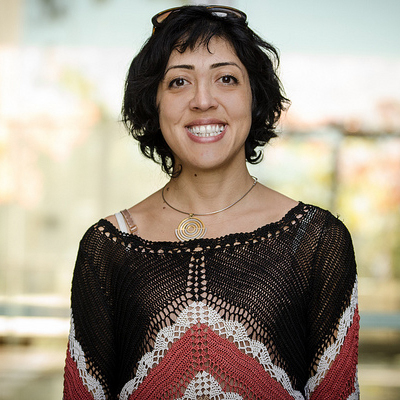Improving big data acquisition and analysis in smart energy grids and data centers
Dr. Javidi understands the importance of data, especially its time sensitivity. A delay in data transmission in a large cyber-physical system, such as a data center or smart energy grid, can result in the loss of millions for companies and the missed opportunity to discover vital knowledge via real-time data analytics.
A cyber-physical system includes computing technologies that are responsible for the collection, processing, and acquisition of information, which is synthesized with a physical system. Thus in the case of a smart energy grid, the"cyber" elements include the computing technologies which measure energy usage, and the "physical" system is the energy grid itself which controls the output of energy, based on commands from the "cyber" system. Given that large cyber-physical systems have so many sensors, collecting all possible data typically results in a glut of information. This may be inefficient and overwhelming in terms of processing, and it also makes the data collection excessively expensive and resource-intensive.
-
Dr. Javidi is developing a new theoretical framework for understanding how to best control information flow in large cyber-physical systems such as data centers or smart energy grids.
-
Dr. Javidi is conducting experiments on large electricity grids to predict failures (small or cascading) or even typical aspects of the network operation such as what time of day is best for doing certain energy-rich tasks.
-
In particular, she is investigating which pieces of data gathered by cyber-physical systems are the most informative, but also which pieces of information can add reliability to such a prediction.
Dr. Javidi's new theoretical framework for understanding how to best control information flow in large cyber-physical systems has the potential to save millions in costs and to take data analytics to a whole new level of understanding, which can lead to groundbreaking new insights.
Bio
Dr. Javidi studied electrical engineering at Sharif University of Technology, Tehran, Iran from 1992 to 1996. She received the MS degrees in electrical engineering (systems), and in applied mathematics from the University of Michigan, Ann Arbor. She received her Ph.D. in electrical engineering and computer science from the University of Michigan, Ann Arbor, in May 2002.
Dr. Javidi's research area involves stochastic analysis, design, and control of information collection, processing, and transfer in modern communication and networking systems. This covers broad theoretical questions as well as practical implementation of various solutions.
Dr. Javidi often proves theorems but also builds inexpensive test-beds and/or tests theoretical findings in practical systems.
From 2002 to 2004, Dr. Javidi was an assistant professor of electrical engineering at the University of Washington, Seattle. She joined University of California, San Diego, in 2005, where she is currently an assistant professor of electrical and computer engineering.
National Science Foundation, Early Career (CAREER) award (2004).
Barbour Scholar, University of Michigan (1999).
Ranked first in the nationwide entrance exam for Iranian universities (among 300,000 examinees) 1992.
In the News
How We Get It, How We Use It, How to Benefit from It
Union Tribune


